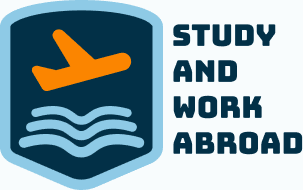Call Us:+91-9920234749, +91-9833420909 info@studyandworkabroad.in
Student-Teacher Relationships: What to Expect While Studying Abroad
Studying abroad is fascinating because students may explore new countries, learn about the globe, and improve their academic skills. The student-teacher relationship is crucial to this experience.
Knowing what to expect is crucial for academic and personal improvement. This article describes how student-teacher relationships vary by culture. It advises students planning to study abroad.
Handling Cultural Differences in Teacher-Student Relationships
Students studying abroad will quickly realize that student-teacher interactions vary by country. Teachers and students may have a more structured connection in other countries, while some relationships are more relaxed and collaborative.
Open communication and respect are typical in Western countries like the US, UK Canada, New Zealand and Australia. Teachers urge students to participate in class discussions, ask questions, and speak up. The major goals are to improve critical thinking and create a learning community.
However, many Asian countries have hierarchical connections. Teachers are authority figures; thus, expect respect from the students. Classroom discussions may be more formal and less important. Cultural differences must be understood for students to succeed in their new college.
What a Teacher Does Overseas
Away from home, students may not be habituated to teachers’ roles. In many colleges, teachers often help their students. They advise on college work, project work and help students improve themselves as people, and prepare for the future.
Profs may be easier to reach and more willing to help students outside of class in the UK. It could help with academics, work, or life in general. Students are told to use the fact that teachers are willing to help them.
However, some teachers in Europe might tell their students to be more involved in their learning. Helping each other study and stay focused may be more valuable than giving direct help. This difference pushes students to change and take responsibility for their college work.
What People Want and How to Talk to Them
Good communication is key to having a good bond with your teacher. However, different countries have different ways of communicating, which can change how teachers and students talk to each other. North American students are advised to be confident and initiate conversations.
They should debate, ask questions, and seek answers. Teachers like it when students voice their opinions. However, Asian societies may communicate more indirectly. Some students are embarrassed to ask questions or voice concerns in class because they respect the teacher or don’t want to look terrible.
Students must find other means to communicate, such as during office hours or in writing. Students studying abroad must understand these communication patterns and expectations to get along with their lecturers.
Problems with Student-Teacher Connections Overseas
- Studying abroad can be difficult, especially if you don’t get along with your lecturers. Language, cultural, and academic differences might hinder progress.
- Language issues are widespread. Even if pupils know the class language, academic terminology can be confusing. Students and teachers may not comprehend or communicate properly.
- Students who don’t know how their home country’s colleges run may also misinterpret culture. In some cultures, questioning a teacher’s opinion is disrespectful, but in others, it shows critical thinking.
- Multiple education standards might cause problems. Critical thinking and analysis are valued more in some countries than memory. Academic achievement requires knowing your goals and how to accomplish them.
How to Get Along Better with Your Teachers
These ideas can help students in other countries deal with these problems and improve relationships between teachers and students:
- Keep an open mind: You will likely encounter different teaching methods and social norms. When working with these differences, be open-minded and adaptable.
- Be clear and concise: When you talk to someone in person or by email, be clear and friendly. If you don’t understand, ask for help.
- Ask for feedback: If you want feedback on your work, ask for it every day. This will demonstrate that you are paying attention and help you comprehend what your instructors expect from you.
- Use proper greetings: Make sure you are aware of the rules that govern the area and that you properly treat your teachers and classmates. This includes greeting the instructors and performing well in the classroom.
- Get yourself involved: This is not the time to wait for your instructor to get in touch with you. Talk to the teachers, become involved in the class, and ask for assistance.
- Respect punctuality: Being punctual is a great way to demonstrate to your instructors that you are interested in their lessons and that you value their time.
What Happens When Students and Teachers Get Along
Strong ties between teachers and students can help students do better in college and be happier all over the world. Having good relationships can help your grades, keep you motivated, and make you happier at college.
When teachers know their students well, they can give them more individualized help. This could help students who are having problems at college or in their daily lives. Having good relationships with your teachers can help you get internships and get advice for your career.
These connections typically extend beyond college. Many pupils feel close to their teachers and receive support beyond college. International students who feel lonely or unsure of their future can benefit from this.
Conclusion
When you study abroad, student-teacher contact is key. Understanding the country’s academic standards, communication style, and culture will help you bond with your teachers.
To overcome these differences and maximize your study abroad experience, students should be open-minded, courteous, and proactive. Having these relationships can boost your academic success and study abroad experience.



